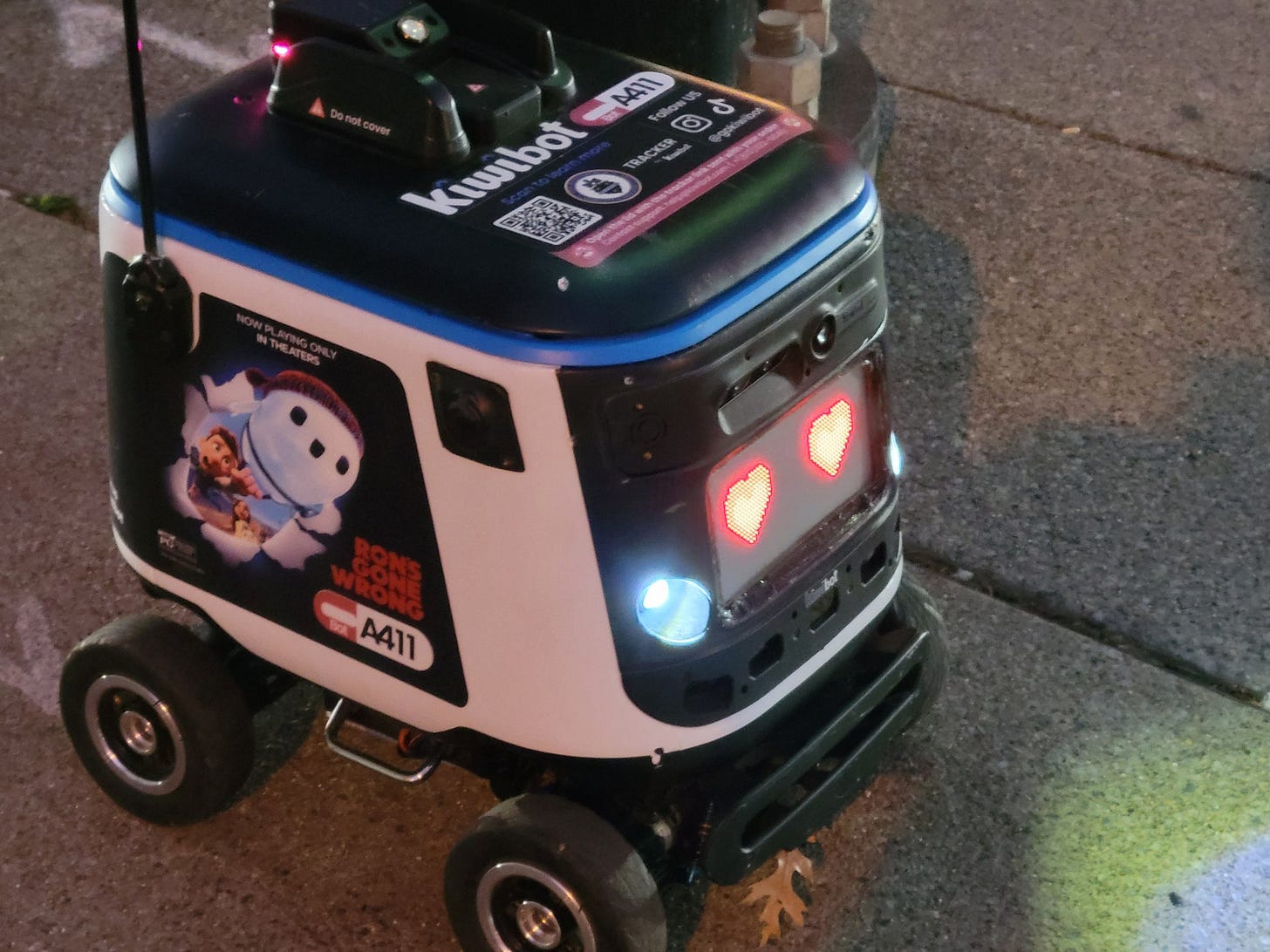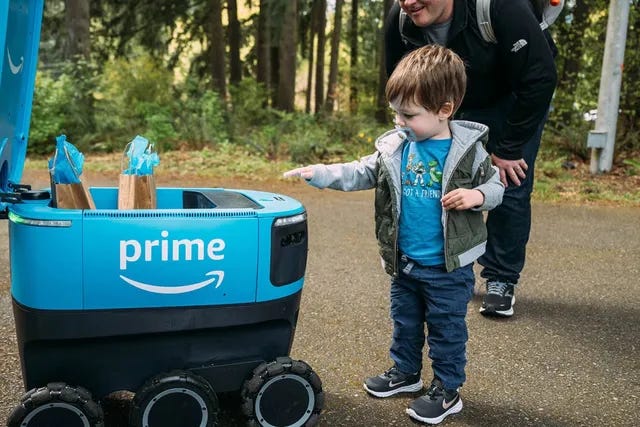What Happened to the Delivery Robots?
Analyzing a trend in robotics that seems to have peaked a few years ago - and hopefully is on its way back
It’s Monday night. It’s been a hell of a day. You’re not going to cook tonight, and neither is your partner, so you take out your phone, find something good on Doordash, and press a button. More than thirty seven million people do this all the time, and yet it’s a process filled by middlemen, that involves lots of inefficiencies, and seems ripe for automation.
After all, Waymo is building self driving cars, and those work! And unlike passengers in a robotaxi, your burrito doesn’t care if the robot slams on the breaks, or if the robot carrying it has to pull over and call a teleoperator to get unstuck.

So, indeed, there used to be a huge number of companies building these little robots! So what happened to them? Where are our delivery bots?
Defining the robots
I’m specifically going to talk about “last mile” delivery robots here, so ones that were small, cooler-sized, and sidewalk capable. There are certainly bigger ones - companies like Embark, Aurora, and StackAV are working on self-driving trucks, for example, and Zipline is doing amazing things with drones. But we don’t care about any of those.
Nuro, above, has a slightly different design, and originally planned on a smaller, safer vehicle which struck a sort of middle ground. This may no longer be the case; their website seems to de-emphasize the original robot, though at least the company is still around, so that’s something. (video source)
How many companies were doing this?

The clear leader in the space is Starship - who we’ll get to later - but lots of companies were involved, and many are no longer with us. Amazon Scout - pictured above - is probably the most prominent example.
But people used to see these things all the time. See Postmates, which had delivery robots driving around LA according to this reddit post:

Postmates spun this effort off as Serve Robotics, which recently (well, last year) inked a deal with Uber for 2,000 of these things. So it’s not like this hasn’t gone anywhere, despite high-profile failures like Spot.
Why is this so hard?
For Amazon (and Uber), there’s another reason to decrease their commitments: they already have last mile figured out, so the robots have to be really damned good to compete! This is one of the same reasons we might see Amazon Prime Air struggle. Amazon has at least 30,000 vehicles in the field right now; they probably have someone in your neighborhood multiple times a day as it is. And humans make for incredibly good robots! We’re much smarter and much more capable than any delivery robots out there.
What’s Next
Where we’ve seen the most success clearly seems to be college campuses. Which makes sense; college campuses have tons of demand for delivery in a very small, pedestrian-friendly area. Perfect for these robots to start out in.
Starship is delivering on 50+ university campuses. They’ve been deployed in Milton Keynes for over 5 years. Kiwibot, as well, is present on various colleges, with a ton of partners listed on their site, and it’s starting to branch out into renting robots.
But they don’t seem to be stopping there. Serve robotics is planning to deploy 2,000 units by 2025, and has a bunch of high-profile partners including Uber and 7/11. Despite lots of issues, Nuro is now deployed in 3 cities. TinyMile is doing delivery in Miami and Coco is doing delivery in LA.
So, I think we’re starting to see these services become more robust, just like we’re seeing companies like Waymo really explode, with planned expansions to cities like Miami and offering 100,000+ autonomous rides per week.
Another thing to note is how good teleoperation and low-cost robots have gotten - we can see companies like Frodobots, which can deploy lots of low-cost mobile robots all over the world, and recently ran a competition pitting human drivers vs. AI.
For a while, there wasn’t much hype around these smaller delivery robots. Robotics takes a long time, though — always longer than you think — and it seems like they might be getting close to finding the right niche.
Updates: added Coco and TinyMile, which I’d missed.
Update 2: Add Cartiken to the list: it’s another company in this space, doing last mile delivery, campuses, and more.



Cartken should probably be in the list too, although I'm not sure how many robots they have shipped...
"humans make for incredibly good robots!" Ha, very true.
So long story short, you see this as an idea that people tried to push through before it was ready, sort of like the late-90s dot-com bubble? Likely taking off, but a bit later than some thought?